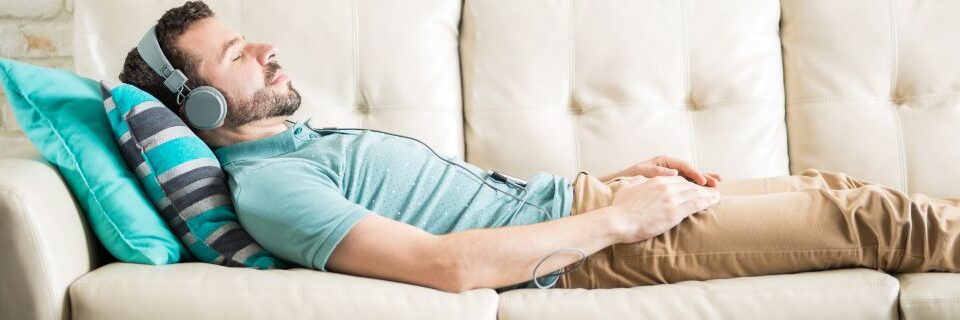
Sleep Paralysis: Conquering the Demons

Dealing with Disordered Sleep: How to Get the Sleep You Need
Table of Contents
It is crucial to get enough sleep at night, but the quality of your sleep also plays a role in how you feel in the morning. A sleepless night affects your mood and ability to focus the next day. An ongoing lack of sleep depletes your physical and emotional health, impairs your immune function, and drains your energy and creativity. How much sleep do you need? It depends on factors like your age, lifestyle, and stress levels. The good news is that you can improve your sleep habits.
Why Is Sleep Important?
Sleep is the time when your mind and body reset, giving you energy and clarity to start a new day. Lack of sleep increases your risk of illness and makes you more likely to get into accidents and make mistakes. Adults usually need between seven and nine hours per day, and children, especially those under six years, need much more.
The body’s internal clock, also known as circadian rhythm, regulates functions like eating and sleep. Its goal is for you to wake up refreshed and slowly wind down during the day, making it easy to fall asleep in the evening. At night, you go through four stages of sleep.
Relaxation increases during the first stage, and body functions slow down during the second. During the third stage, brain waves fall to their lowest level, and your body gets the deep rest it needs to restore itself. The fourth stage is the REM, or rapid-eye-movement, cycle. Your breath rate, blood pressure, and heart rate slowly rise; your eyes move; and you dream.
Every stage is necessary for optimal rest, and each cycle repeats itself during the night. REM sleep makes up about one-fourth of each cycle. Scientists think this is when the brain converts new information to long-term memories. This stage gets longer as people get older, but sleeping problems can occur at any time.
Is There a Time When You Should Go To sleep?
A 2021 article in the European Heart Journal says falling asleep between 10:00 PM and 11:00 PM helps prevent heart disease. The study looked at 88,000 adults over six years.
Data showed that participants who went to sleep between 11:00 PM and 11:59 had a 12% greater risk of developing heart disease. Those who fell asleep at midnight or later had a 25% greater risk. Adults who fell asleep before 10 PM had a 24% increase in risk.

What Are the Best Hours To Sleep?
Researchers say you get more non-REM sleep during the early part of the night, and non-REM stage 3 sleep is deeper and more restorative than other stages.
The hours between 8:00 PM and midnight give you a chance to get both the REM and non-REM sleep you need. How early or late during that span you choose to fall asleep depends partially on your genetic make-up. If sleeping problems make it hard to get to sleep on time, our tips to get a good night rest can help.
How Much Sleep Do We Need?
The guidelines below list approximate age requirements and the hours of sleep they need each day:
- Newborn to 3 months – 14 to 17 hours
- Four months to one year – 12 to 15 hours
- One to two years – 11 to 14 hours
- Three to five years – 10 to 13 hours
- Six to 13 – 9 to 11 hours
- Ages 14 to 7 – 8 to 10 hours
- Adults – 7 to 9 hours
- Elderly – 7 to 8 hours
- 9. Pregnant women in the first trimester – as needed
Six Tips To Get a Good Night Rest
To make the most of your nights, consistently practice good sleep hygiene habits:
- Use hypnosis for sleep to help you unwind.
- Improve your sleep by sticking to a schedule.
- Keep your bedroom cool, dark, and quiet.
- Get physical exercise every day.
- Turn off electronics before bedtime.
- Learn to manage stress.
Visit UpNow to make an appointment with a hypnotherapist or to download our hypnosis to fall asleep audios. Hypnosis is an effective way to bypass self-defeating thoughts and replace them with positive ones.
UpNow Health only uses high-quality sources, including peer-reviewed articles, to support the facts within our articles. All our articles are reviewed by experts to ensure that our content is accurate, helpful, and trustworthy.
1. What is REM Sleep, The National Sleep Foundation, Link
2. National Institute of Neurological Disorders and Stroke, Brain Basics: Understanding Sleep, National Institutes of Health Publication No. 17-3440c, Link
3. Shahram Nikbakhtian, Angus B Reed, Bernard Dillon Obika, Davide Morelli, Adam C Cunningham, Mert Aral, David Plans, Accelerometer-derived sleep onset timing and cardiovascular disease incidence: a UK Biobank cohort study, European Heart Journal – Digital Health, Volume 2, Issue 4, December 2021, Pages 658–666, https://doi.org/10.1093/ehjdh/ztab088
4. UpNow, How to sleep better: 5 tips to getting a good night’s rest. https://upnow.com/how-to-sleep-better-tips-to-getting-a-good-nights-rest/
5. Paruthi, S., Brooks, L. J., D’Ambrosio, C., Hall, W. A., Kotagal, S., Lloyd, R. M., Malow, B. A., Maski, K., Nichols, C., Quan, S. F., Rosen, C. L., Troester, M. M., & Wise, M. S. (2016). Recommended Amount of Sleep for Pediatric Populations: A Consensus Statement of the American Academy of Sleep Medicine. Journal of clinical sleep medicine : JCSM : official publication of the American Academy of Sleep Medicine, 12(6), 785–786. https://doi.org/10.5664/jcsm.5866
6. Watson, N. F., Badr, M. S., Belenky, G., Bliwise, D. L., Buxton, O. M., Buysse, D., Dinges, D. F., Gangwisch, J., Grandner, M. A., Kushida, C., Malhotra, R. K., Martin, J. L., Patel, S. R., Quan, S. F., & Tasali, E. (2015). Recommended Amount of Sleep for a Healthy Adult: A Joint Consensus Statement of the American Academy of Sleep Medicine and Sleep Research Society. Sleep, 38(6), 843–844. https://doi.org/10.5665/sleep.4716
7. Hirshkowitz, M., Whiton, K., Albert, S. M., Alessi, C., Bruni, O., DonCarlos, L., Hazen, N., Herman, J., Katz, E. S., Kheirandish-Gozal, L., Neubauer, D. N., O’Donnell, A. E., Ohayon, M., Peever, J., Rawding, R., Sachdeva, R. C., Setters, B., Vitiello, M. V., Ware, J. C., & Adams Hillard, P. J. (2015). National Sleep Foundation’s sleep time duration recommendations: methodology and results summary. Sleep health, 1(1), 40–43. https://doi.org/10.1016/j.sleh.2014.12.010












